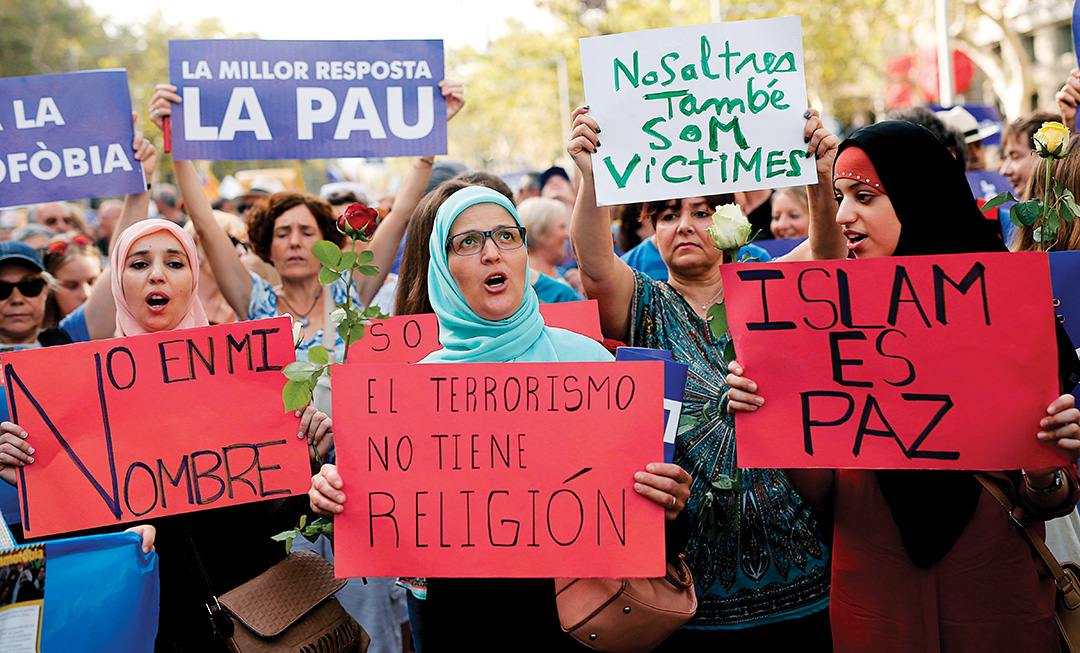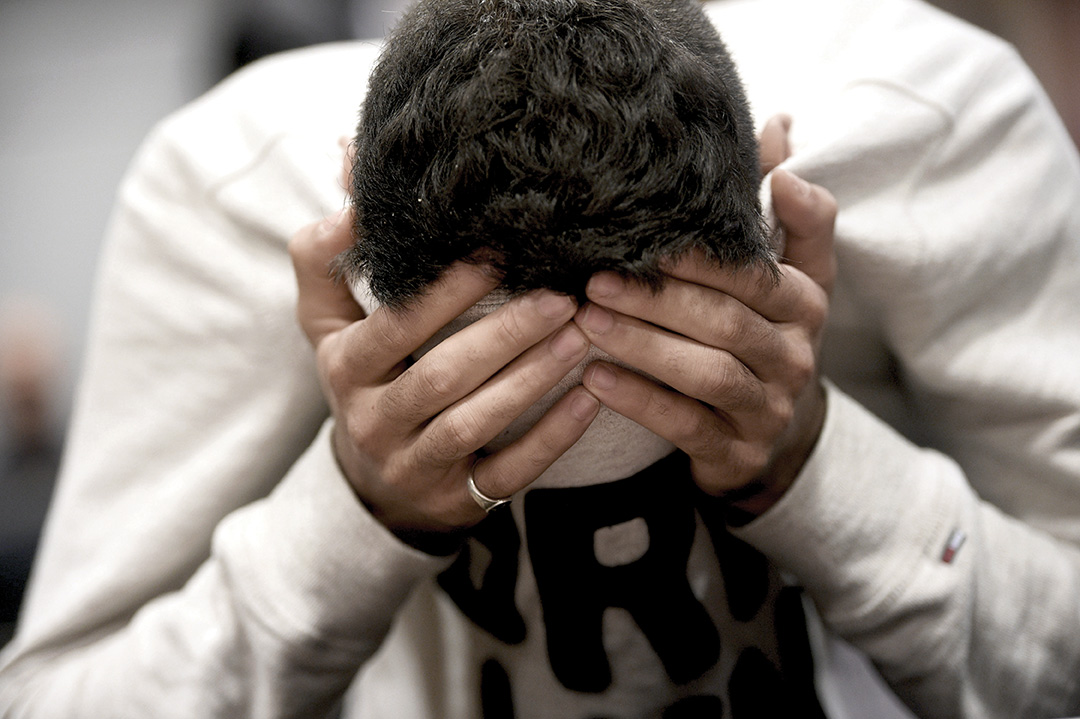Social separation is a barrier to ending the violence
By Fahredin Verbovci, Kosovo Police
Photos by AFP/GETTY IMAGES
The free movement of people, goods and services is fundamental to the political system of the European Union. But EU countries have recently been flooded with migrants from Africa and the Middle East in search of better economic opportunities or to escape ongoing wars. This migration is often contrary to the desires of EU countries. Even when it is in accordance with humanitarian migration policies, it can become a source of extremism and radicalism that in some cases has been manifested in terrorist acts.
The majority of these migrants belong to the Muslim community, and many are not integrating well into the cultures and societies of their host countries, creating concerns among native populations. In maintaining their religion, traditions and habits, these Muslim immigrants are increasing social separation and harming integration efforts.
In his study of Muslim migration to the EU, professor and philosopher Tariq Ramadan found that the increasing number of Muslims with extremist philosophies in Europe — particularly in France — is creating difficulties on many fronts. Most of these Muslims are not integrated into European society. Only by fighting extremism and radicalism can Islam serve as an instrument of harmony and culture in Europe. The deadly terrorist acts in European countries reinforce Ramadan’s arguments.
Among the biggest threats and challenges to EU countries since the dissolution of the Soviet Union:
- The flow of immigrants from the Maghreb countries (Morocco, Algeria, Tunisia and Libya) and from the Middle East.
- Aging populations within the EU.
- Violent extremism and radicalization that lead to terrorism.
- The return to the EU of jihadists who have participated in the Middle East wars.
An inability to integrate immigrant populations in EU countries into a single community of common citizens in a democratic and pluralist order can damage the cultural sustainability of these countries. Radicalism among some Muslim immigrants is often associated with criminal acts, which strains European security. Although EU countries have consistently tried to coordinate focused social policies to prevent and combat violent extremism, it remains a national security concern.
In addition to their integration efforts, EU countries and their non-EU partners should focus more on fighting ISIS on social media and online. ISIS supporters are sending messages throughout the world through Twitter and other social networks to build strategies and platforms. Years ago, ISIS launched a jihadist online platform that encouraged supporters to join its terrorist forces not only in Syria, but also in European countries.

But the question remains: What concrete step is the EU taking to cope with the influx of immigrants and prevent them from turning to violent extremism?
EU members have agreed to revise and reinforce the 1997 Dublin criteria for asylum-seekers and to review and amend policies for migrants. Some European states have expressed skepticism about undertaking their EU obligation to accept a share of refugees from the Syrian wars. The EU must act before the safety situation escalates. To aid the refugees, EU countries must focus on providing shelter, education, integration and socialization — as well as socio-economic assistance — to familiarize them with European culture.
Is Islam identified in Europe with extremism and terrorism? Most EU countries do not prejudge the religious element, but they must come together to fight extremism. Muslim extremists’ have used religious symbols in a negative way in recent terrorist acts as a statement against the West and democratic values in Europe.
There is a large Muslim community in Europe and it constitutes an important economic, cultural and social pillar. Extremists with various problems and with a pathological hatred of Western values have nothing to do with the true Islam, because true Islam cultivates peace and harmony in the family and in society. Religion, in this context, should serve as an instrument of unity among people with different traditions and habits. It should encourage understanding, integration and harmonization among people, not separation, disunity and hatred.

These features of Islam enhance the importance of religion in a troubled international system beset by stereotypes. Let us not forget that Muslim and Christian believers have lived together in peace in the West and will continue to do so. A steadfast Europe supports democratic processes and liberalism, and the common struggle of today is to prevent radicalism and combat violent extremism and terrorism by all available means.
A former president of the European Commission, Romano Prodi, said: “The EU should take on new responsibilities. And these new responsibilities call for intensification of the integration process, and we need to raise our voice and work for the future of Europe.” Only through the process of cooperation and coordination can the democratic EU tackle violent extremism and terrorism within Europe and beyond.


Comments are closed.